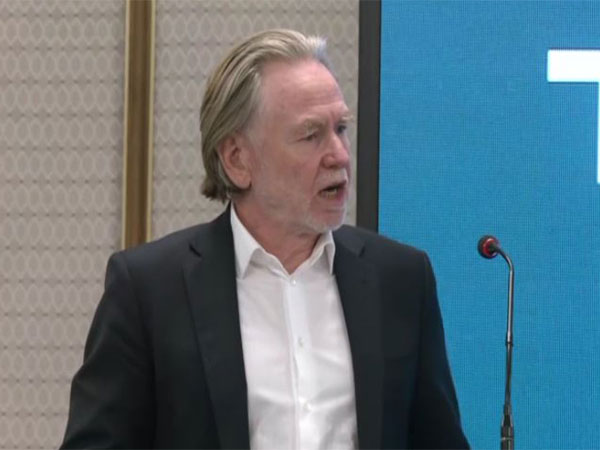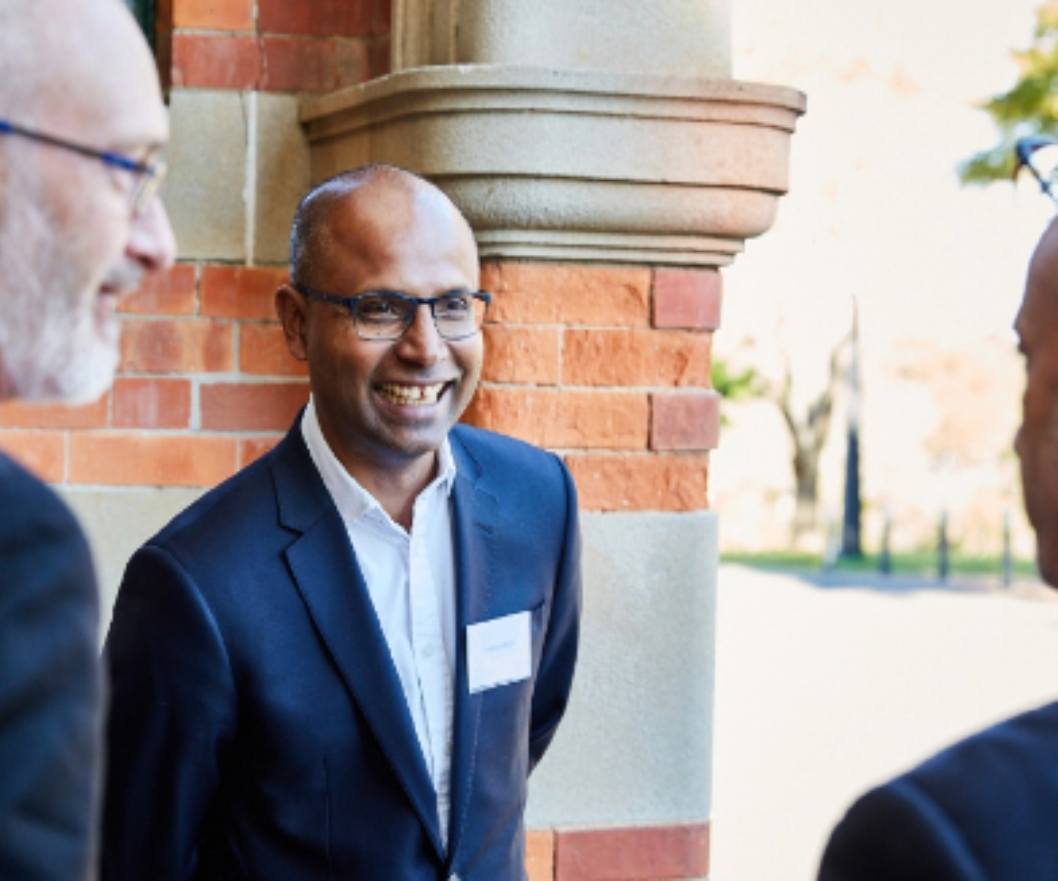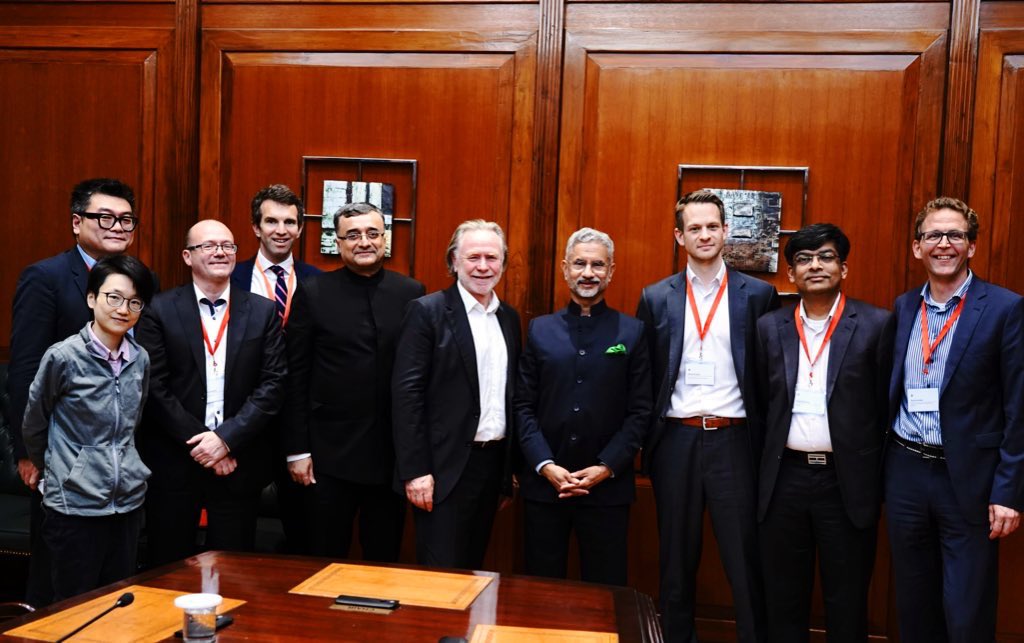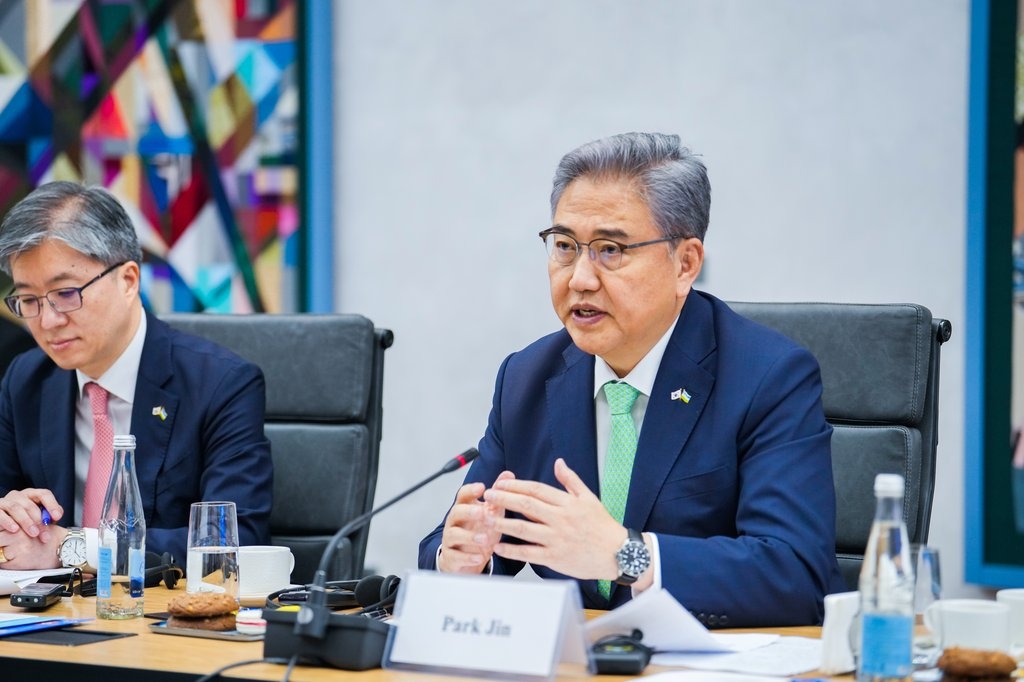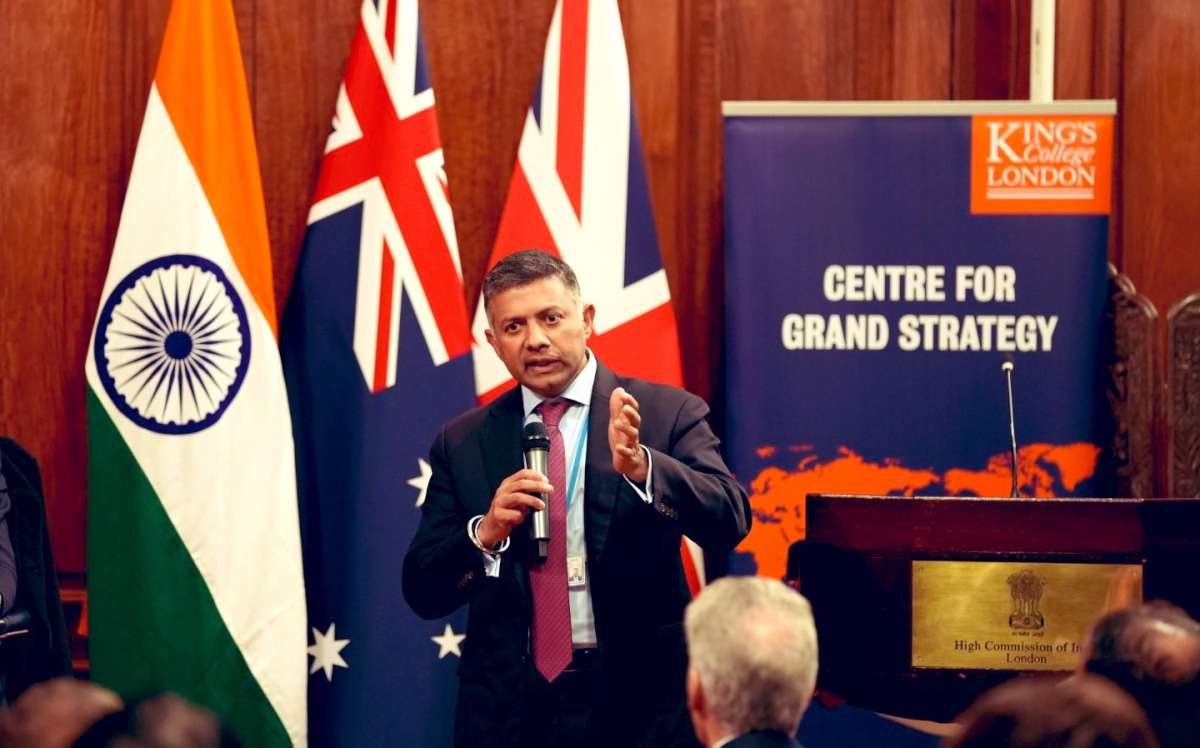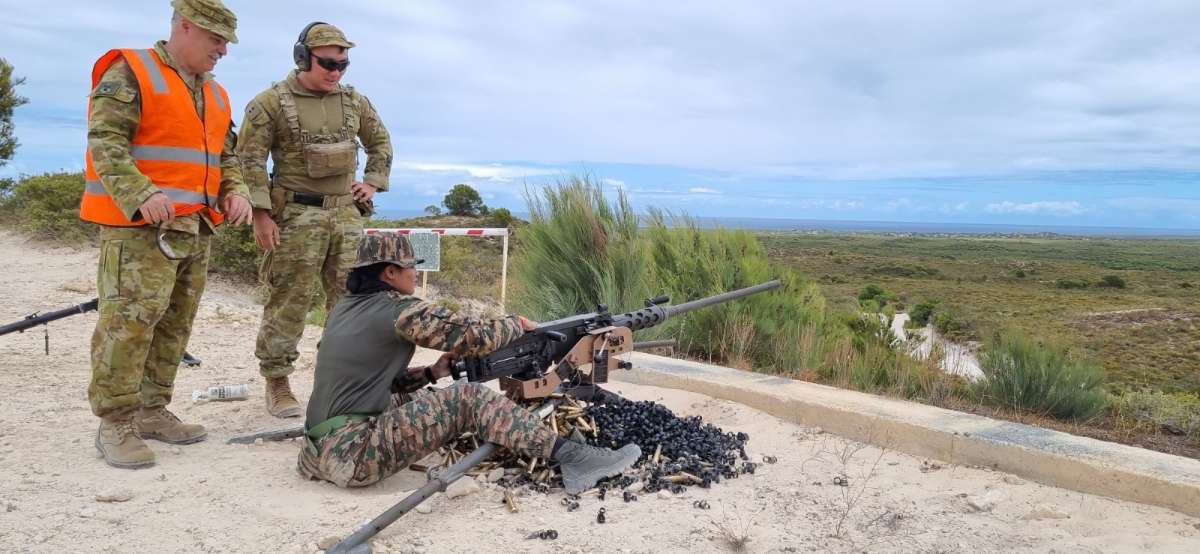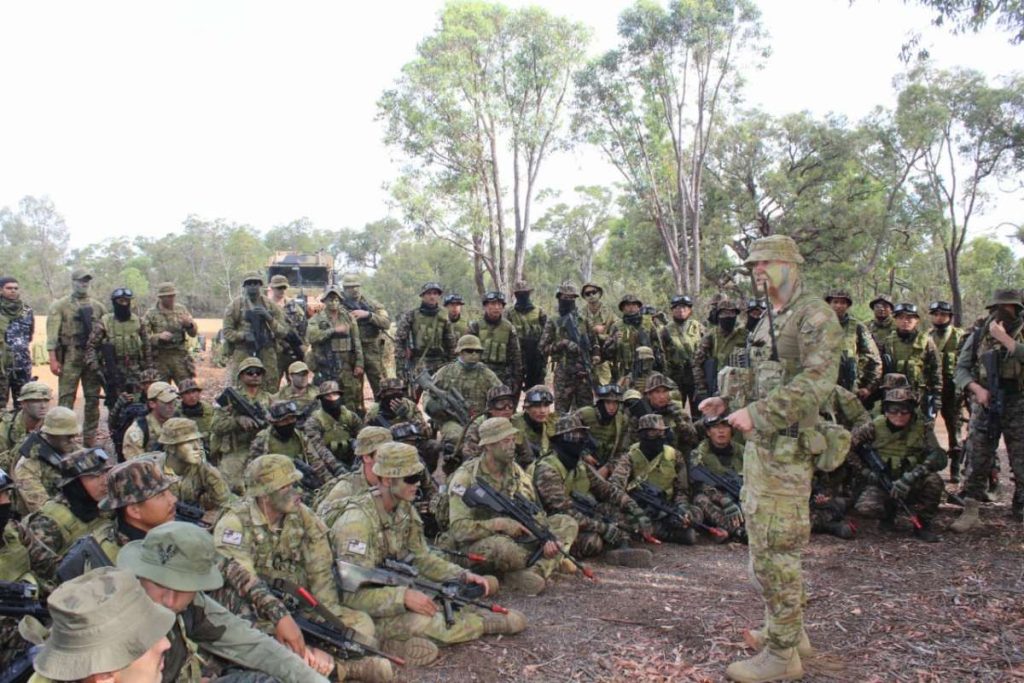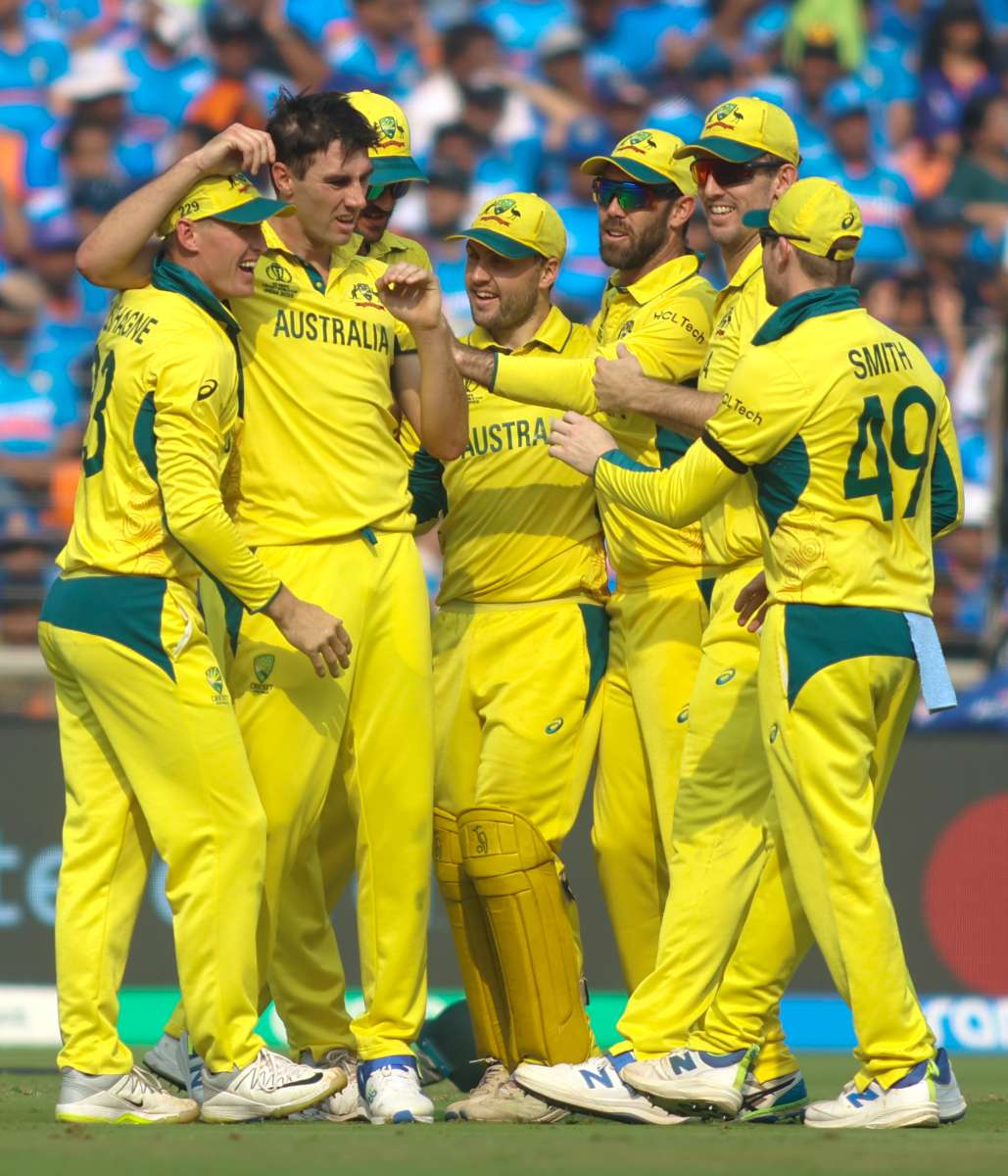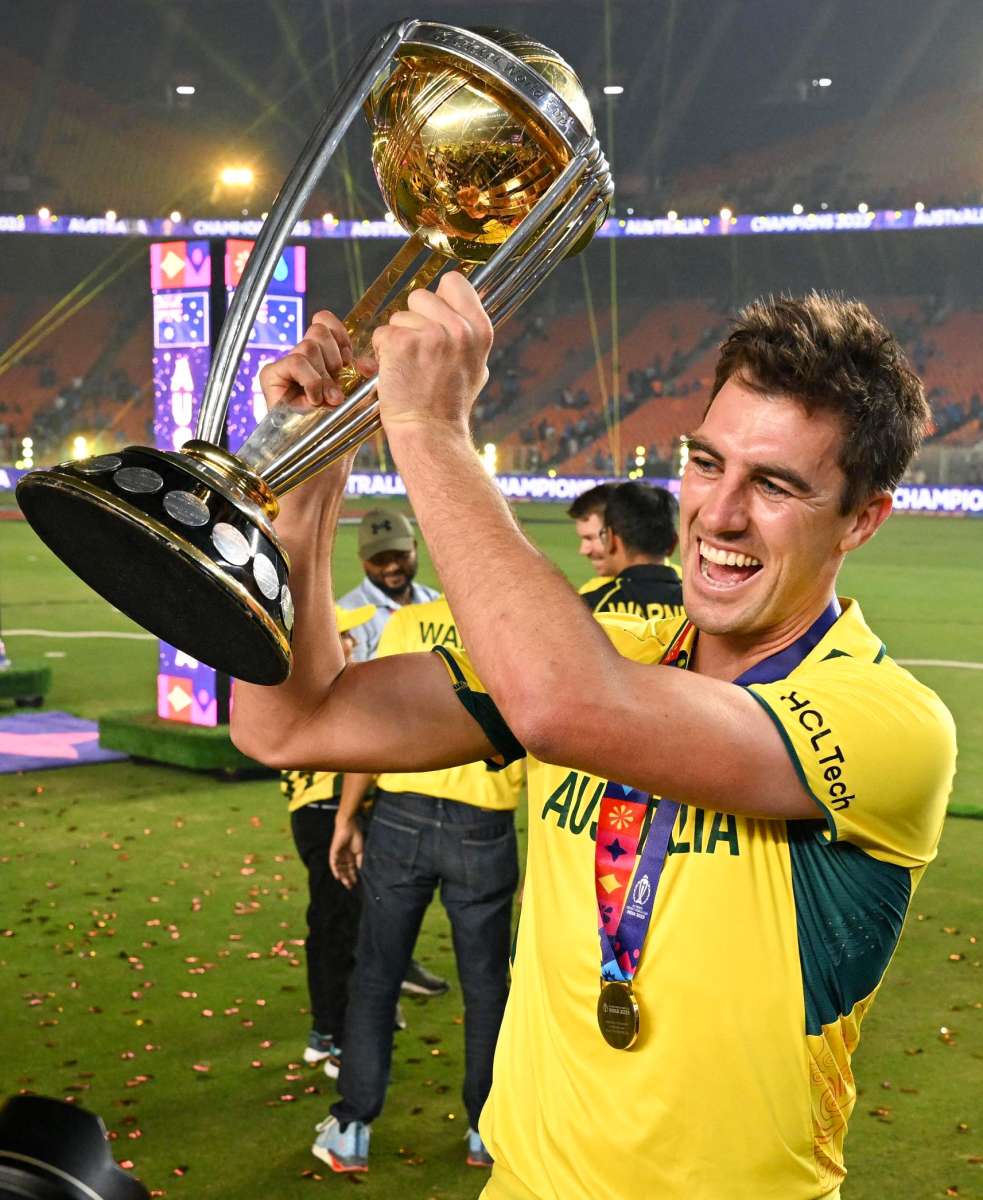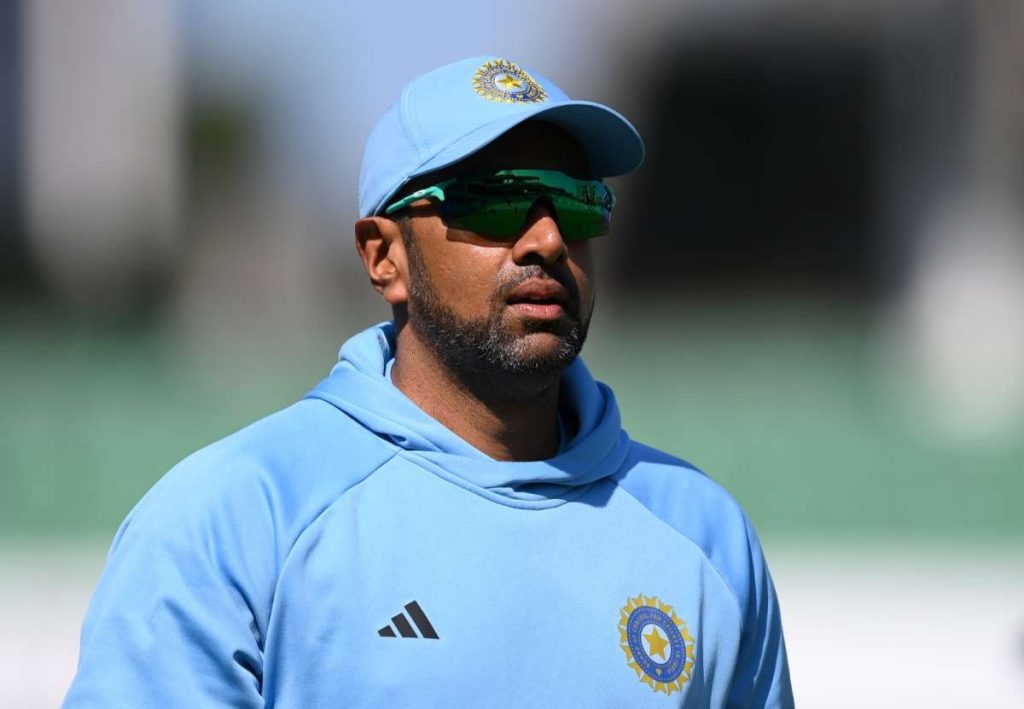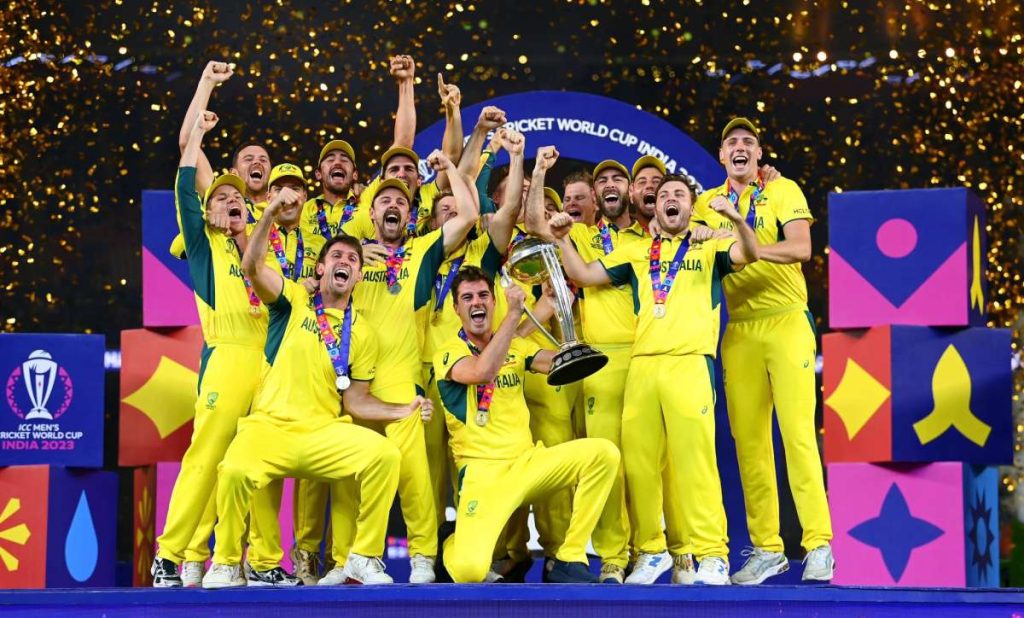Speaking further, the Australian envoy also talked at length about India-Australia trade ties, the Indo-Pacific and QUAD (Quadrilateral Security Dialogue)…reports Asian Lite News
Lauding the bilateral partnership between New Delhi and Canberra, the High Commissioner of Australia to India, Philip Green OAM highlighted a remarkable two-way trade that has grown by more than 50 per cent over the past five years, adding that India is the most consequential relationship.
Emphasizing India’s paramount significance in their bilateral relations, he expressed his commitment to proactive engage during his tenure and said that, as Australia’s 22nd High Commissioner to India, he is “here to get things done.”
In his keynote address at the Asia Society Policy Institute, here in the national capital, the Australian to India said, “For me, assuming this role as Australia’s 22nd High Commissioner to India is the pinnacle of his career. India is the most consequential relationship, at the most critical moment, I have ever worked on. It is a privilege for me to be here today.”
Affirming his dedication to advancing the partnership between the countries and echoing the directive he received from the Prime Minister to propel the relationship to new heights, he said,”Our relationship is at the highest point in our history. But I’m not here to rest on laurels. I’m here to get more things done. I’m here to drive the relationship further and to drive it faster. That’s what the Prime Minister told me to do when he sent me here.”
Asia Society Policy Institute, notably a division of Asia Society India Centre, is a think-and-do tank designed to bring about changes that incorporate the best ideas from top experts in Asia and to work with policymakers to integrate these ideas and put them into practice.
Speaking further, the Australian envoy also talked at length about India-Australia trade ties, the Indo-Pacific and QUAD (Quadrilateral Security Dialogue).
“On the economic front, our two-way trade has grown by more than 50 per cent in the last five years. And last year, we signed the landmark Economic Cooperation and Trade Agreement (ECTA). This deal has provided the momentum for negotiations towards an even more ambitious goal: a Comprehensive Economic Cooperation Agreement or CECA,” he said.
Highlighting the role of Quad, he said that there is a big comparison in how it used to be earlier and how things progress under the grouping now.
“Quad in 2019 meant loose, informal meetings of officials in the margins of multilateral gatherings. No fixed agenda. Sometimes, no substantive statement. Those discussions, to be frank, largely centred on whether and how the Quad should become the Quad–Contrast that to what we see now– We have delivered three Quad Leaders’ Summits. Leaders, as well as Ministers. In addition to a proliferation of Senior Officials’ meetings,” the envoy said.
Despite the change in plans regarding President Biden’s visit to India, the envoy affirmed Australia’s ongoing collaboration with India and other QUAD partners to facilitate a Summit next year.
“And while today’s news is that President Biden is unable to travel to India in January, Australia will continue to work closely with India and its other partners to support its efforts to host a Quad Leaders’ Summit next year. In only a few years, we’ve developed a shared vision, a positive agenda, and we’re getting stuff done, he added.
Green also emphasised that India and Australia see the Indo-Pacific region the “same way” and “share same goals.”
He said, “…And if India and Australia want to preserve an open, stable and prosperous Indo-Pacific, we need each other. We see the region the same way, we share the same goals, and we both know what needs to be done. This is what strategic alignment looks like: a mission to work together.”
He further noted that Australia is investing in its network of strategic partnerships and added that India is an indispensable partner.
“Australia is investing in our network of strategic partnerships. We know that when countries pool their resources and combine their strengths, that is a decisive competitive advantage. And India is an indispensable partner, critical for achieving the sort of strategic equilibrium that we need,” Green said.
Highlighting how India and Australia’s defence ties are at their pinnacle currently, Green said, “For the first time this year, we welcomed an Indian submarine to dock in Australia, and we welcomed visits by two Indian military aircraft to the Cocos (Keeling) Islands.”
He also said that sense of partnership was on full display last month at our second Foreign and Defence Ministers’ 2+2 Meeting in Delhi.
“Our Ministers agreed to an ambitious set of outcomes, including expanding the scope and complexity of our joint military exercises and continuing the deployment of aircraft from each other’s territories to enhance shared maritime domain awareness. We also decided that our diplomats should be working more cohesively in the Indo-Pacific region. It is a necessity that drives Australia and India to work together, in combination with other nations, to enhance our collective security and prosperity,” the envoy said.
Green also stated that he wants a Comprehensive Economic Cooperation Agreement (CECA) that expands the range of goods available in India and also gives a boost to Indian supply chains.
“I want us to have a Comprehensive Economic Cooperation Agreement that expands the range of goods available in India, strengthens Indian supply chains, and advances its green transition. ECTA already gets us some of the way there. 96 per cent of Indian goods now enter Australia duty-free, and 85 per cent of Australian goods now enter India without tariffs,” the envoy said.
“Our companies have noticed and are benefiting. India’s utilisation rate for goods under our agreement is 77 per cent–around triple what it is for some of India’s other free trade agreements. We have seen Australian imports of India’s agricultural goods increase by 16 per cent, and imports of Indian apparel increase by 9 per cent. Our CECA agreement will take this even further and faster to deliver for Australian and Indian businesses,” he added, underlining that there have been some good rounds of negotiation that have taken place.
“We have had some good rounds of negotiation. We have a lot of text settled. We know India is focused at present on getting to the finish line with the UK. We are ready to conclude our second phase in due course, but our focus will be on ambition–a good deal, not any deal,” the Australian envoy said.
The India-Australia Economic Cooperation and Trade Agreement (IndAusECTA) came into effect on December 29, 2022. The ECTA was signed on April 2, 2022, and ratified on November 21.
Written notifications were exchanged on November 29 and after 30 days, the agreement came into force.
India and Australia implemented an economic cooperation and trade agreement (ECTA) and are now negotiating the expansion of its scope for the CECA. (ANI)
ALSO READ-Australian-Indian Scientist Bags Prestigious Dorothy Jones Prize

